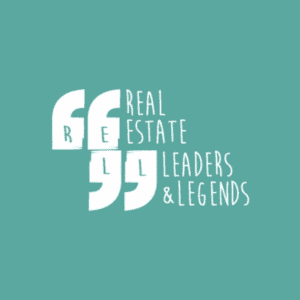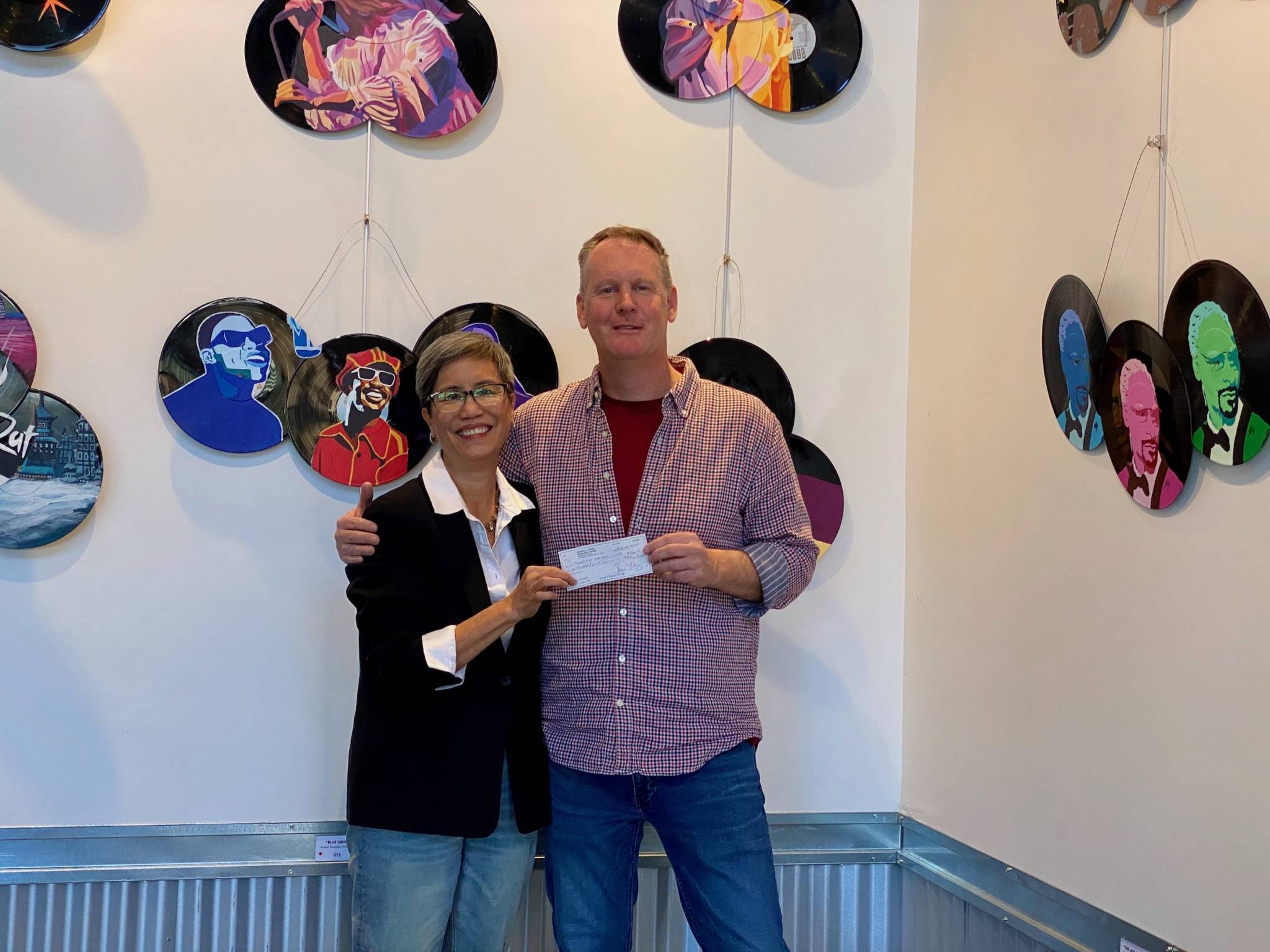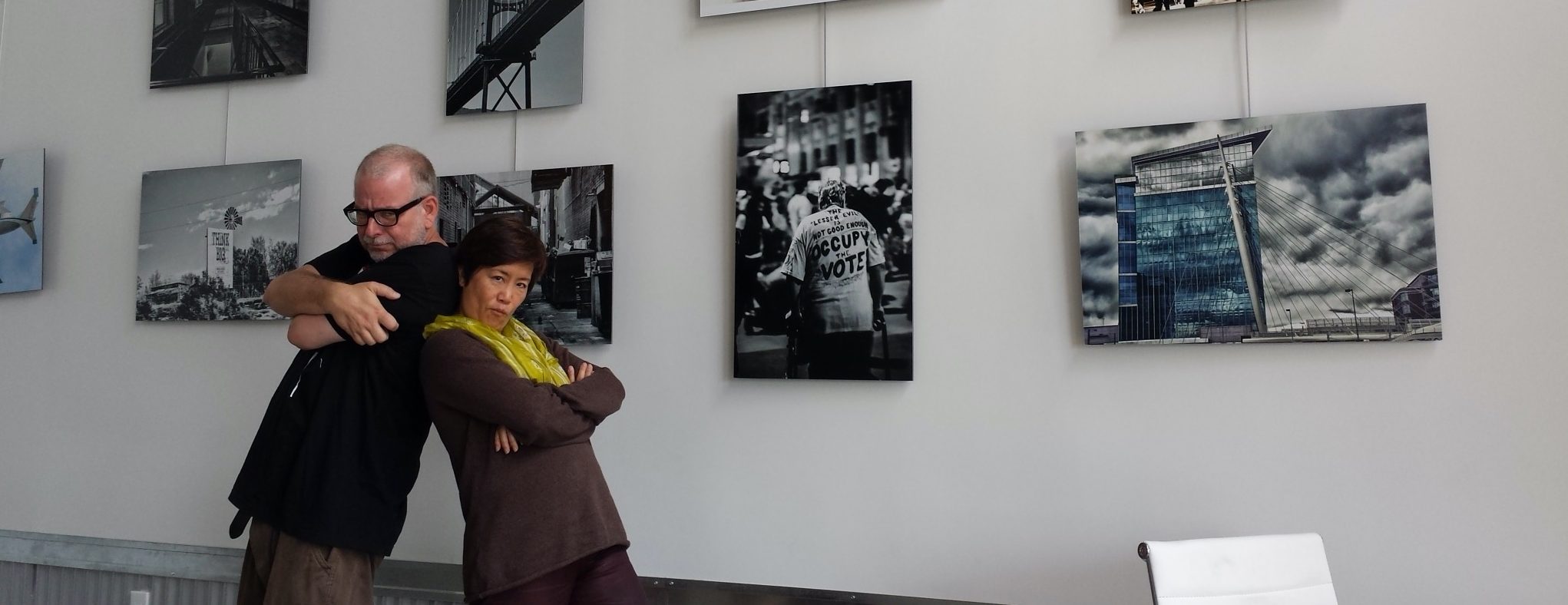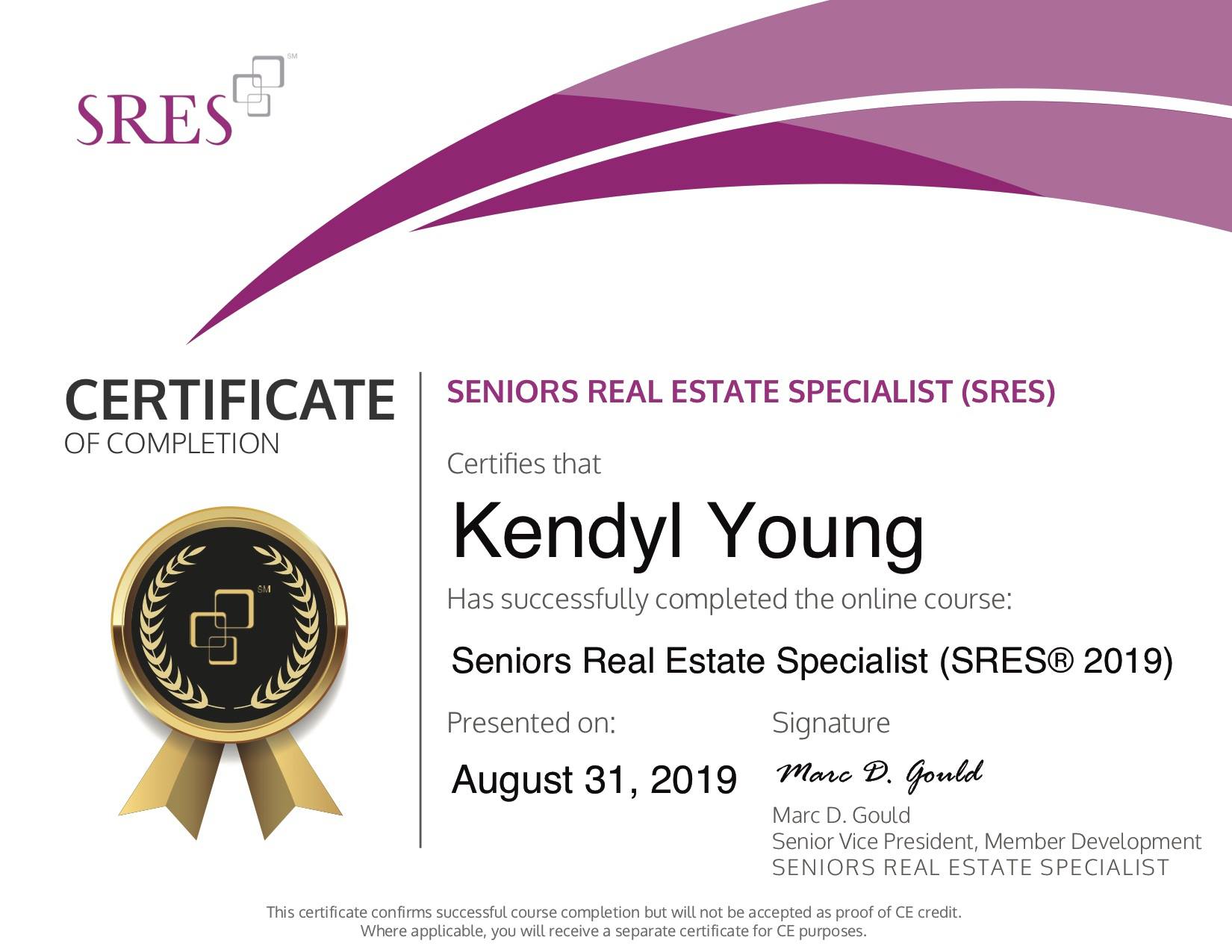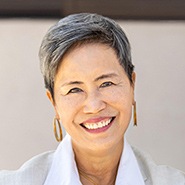Interview: C.A.R Real Estate Leaders and Legends Podcast
I have a strict policy when it comes to Sara Sutachan, VP at the California Association of Realtors. Whatever she asks of me, the answer is “Yes”.
When she asked me to be the inaugural guest on her new podcast I never even asked her the subject of the show I said, “yes”! I showed up at HQ and we sat down for merry hour-long session where we worked out all sorts of technical bugs. Apparently- the bugs were pretty bad, it took Sara two years to release the episode.
I finally took the time to listen (I rarely listen to my recorded interviews.). It was very interesting to hear my past self talk about launching and running an independent brokerage and I was a little surprised to hear myself talking about being introverted. I think I have come a long way from where I was during that interview! I’ve become a lot more comfortable in groups of “strangers” and I use a lot less humor to push people away.
Enjoy.
Transcript
Emily Horn: Hello Legends, and welcome to Real Estate Leaders and Legends, a California Association of Realtors podcast, where we’re dropping leadership knowledge-
Sara Sutachan: One legend at a time.
Emily Horn: You’re about to learn the secrets of success of some of the biggest and brightest in the industry.
Sara Sutachan: I’m Sara Sutachan.
Emily Horn: And I’m Emily Horn. We head up Sierra’s industry relations and local associations services here at CAR, and we’re podcasting from… What are we calling it, Sara?
Sara Sutachan: Studio CAR.
Emily Horn: Yeah, our little makeshift studio.
Sara Sutachan: In K-Town.
Emily Horn: In Korea Town.
Sara Sutachan: Oh, I’m so excited about today’s episode. It’s with Kendyl Young, a friend of mine, but she also runs a small boutique real estate firm in Glendale called DIGGS, D-I-G-G-S Real Estate.
Emily Horn: Yeah, and I love how she told us about how she made her journey to creating her own agency based on the fact that she didn’t find her previous company match up with her core values, so she decided to create her own. So, if you can’t find it, make it.
Sara Sutachan: That’s right, that’s right. We had such a good time with Kendyl. She was a riot.
Emily Horn: She is so funny, naturally funny. I love hanging out with her.
Sara Sutachan: We were in stitches the entire time. But, before we get into the interview, it’s time for-
Speaker 3: The Lead Off.
Emily Horn: So, The Lead Off is what we’re working on, or thinking about this week, inspired by Kendyl’s interview today. Sara, I thought for today’s Lead Off, we could talk about mirror messages.
Sara Sutachan: What’s a mirror message?
Emily Horn: It’s funny. I mentioned that earlier, and I got a funny look. I knew that was just a term that I thought everyone knew, but I think I’ve picked it up from a podcast or something. A mirror message is something you would write on your mirror that you would see every day, or that lives in your head-
Sara Sutachan: Like a daily affirmation?
Emily Horn: Yeah, something that you tell yourself all the time, or that you live by, and that inspires you.
Sara Sutachan: Well, I do have a daily mantra, or just a mantra in general. It’s, “Just do it.” It’s on my laptop. It’s not on my mirror.
Emily Horn: Yeah, I see it right here.
Sara Sutachan: It’s, “Just do it,” and-
Emily Horn: And you stare at your laptop probably more than the mirror, so that’s a good place, right?
Sara Sutachan: Unfortunately, yes, because I have so much work to do. Anyway, I love that mantra. It’s been a mantra of mine forever because I think sometimes we get caught up in fear, and fear paralyzes us. I also love the saying, “Do something you’re scared of every day,” because I truly believe that’s where the magic happens, and that’s where growth is. I also loved how Kendyl talked about it too. I think it’s one of her mantras and daily affirmations, so that was a connection.
Emily Horn: I like that.
Sara Sutachan: Yeah, what about you? What’s your mirror message, now that it’s a thing?
Emily Horn: Yeah, so okay my mirror message is, “No matter where you go, there you are.” To me, that means you are who are, accept who you are, and no matter what, if you win the lottery, or if you lose your job, you’re still you and I think that’s kind of a comforting feeling. It’s like kind of going back to fear, it kind of takes the fear out of everything. Like, what if this happens? What if this happens? Because I ruminate a lot about those kind of worries, and when I say that to myself, “No matter where you go, there you are,” it’s like you’re secure in who you are, accept who you are, and be in the moment.
Sara Sutachan: Yeah, and Kendyl was like that too. She was unapologetically her.
Emily Horn: Yes, I love the authenticity that she exudes, and that’s why partly she was so fun to talk to.
Sara Sutachan: Yeah, yeah. True.
Emily Horn: So let’s get into it.
Sara Sutachan: Let’s do it.
Emily Horn: Welcome, Kendyl. Thank you for being here.
Kendyl Young: Thanks for having me.
Sara Sutachan: Awesome, Kendyl. So, tell us a little bit about yourself and why you started DIGGS. It’s a pretty young company, right?
Kendyl Young: Yeah, we’ve been operational for about three years, and we have just a few hand-selected agents that I’m growing from the ground up. You said, “Tell me about yourself?”
Sara Sutachan: Yeah, why did you… Yeah.
Kendyl Young: I’m a Virgo. My favorite color is blue. Happily married with two kids. What would you like to know?
Sara Sutachan: What gave you the inspiration to open DIGGS?
Kendyl Young: Well, honestly I opened DIGGS out of rebellion more than anything else. I had had the opportunity to leave the large, big box, well established national brand that I’d been at for 25 years. I had gone to a high end boutique, and that wasn’t a really good fit for me.
Kendyl Young: When it became clear I needed to leave that boutique, I just couldn’t go back. I wanted a brand which really resonated with my beliefs, resonated with who I was, resonated with frankly the consumers and the customers that I gravitate towards and gravitate towards me, and there was no brand that really matched that, reflected those values, those… For lack of a better word, that culture.
Sara Sutachan: Yeah.
Kendyl Young: So, since I couldn’t find it, I had to make it. There you go, we launched DIGGS, which is not anybody’s name. I mean, it is somebody’s name, like that gorgeous black actor, Taye Diggs.
Sara Sutachan: Oh, right. Right.
Kendyl Young: He’s gorgeous, let’s just be honest. No, I named it DIGGS because I like to represent cool digs, man. Awesome.
Emily Horn: I like that. I think that says a lot about your personality, because I have gotten to know you a little bit over the past few months. Tell me a little bit about the culture, because I have a feeling you have kind of a unique culture and environment at your brokerage.
Kendyl Young: I think it’s unique. We’re a place where we take our business super serious. Ourselves, not so much. We want to pursue excellence. One of the things that we say around DIGGS all the time is, “Good enough isn’t.” We’re driven by a passion for excellence. We figure if we follow that, pursue that, the money will come. Market share will come. That’s really not important. What’s important is to be the most excellent advocates and representatives of our clients’ needs, wants, and desires.
Emily Horn: Well, you’ve obviously done that.
Kendyl Young: Yeah, well I think most of my clients feel strongly that we’ve accomplished that objective. Along the way, we’ve made a lot of money for our clients too.
Sara Sutachan: So, how do you instill the “good enough isn’t” with your agents?
Kendyl Young: Oh, it’s so dorky, it’s not even funny. It’s super dorky.
Sara Sutachan: What do you mean by super dorky?
Kendyl Young: It’s super dorky.
Sara Sutachan: Okay, there’s a story behind that.
Kendyl Young: So, I came up with the six things that I believe are important to the core of our beliefs. I make my agents say them at the beginning of every meeting, which is twice a week. Some of them have it as their screensaver on their phone. It’s super dorky.
Sara Sutachan: That’s not dorky.
Emily Horn: Do you make them say it individually, or is this like a group effort? I want to picture this.
Kendyl Young: It’s so dorky. Okay, we actually sit there and I say, “Good enough,” and they say, “Isn’t.” I say, “We work together,” and they say, “As one.” I say, “Be good to people,” and they say, “And we are people too.” It’s just really dorky.
Emily Horn: I love it. That’s great.
Sara Sutachan: It acts like a pledge of allegiance.
Emily Horn: It’s not.
Kendyl Young: It is. Half the time we’re giggling when we do it, but yeah, it’s just what’s important to us.
Emily Horn: Do you feel like those reminders really make a difference, because you’re saying them out loud? I think there’s really something to that. Even though it feels a little funny as you’re doing it, right?
Kendyl Young: Yeah, the idea is to program into them… I want to use the word “foundation”, which sounds awfully serious. But, I guess perhaps that’s what it is. These are things that no one would argue with. It’s like, “Well yeah, of course. I believe in excellence. I believe that good enough is not good enough. I want to pursue and grow,” and all sorts of stuff. But, you know I think for many people, those are more words than a belief or an action. By saying it every time we get together, it just becomes a commonly held belief that they accept as truth rather than an option.
Emily Horn: The success that I’m seeing on paper is $30 million dollars in sales last year, 48 sides. How do you define success? Not everyone defines it the same way. That’s maybe one look at it, but how are you defining your own success?
Kendyl Young: That it matters that I was there. It matters to the community that I was there. It matters to my clients that I was there. To my family. To my agents. To Sara.
Sara Sutachan: It does matter to me, Kendyl.
Kendyl Young: Success is when I have created a positive impact wherever I happen to be, in whatever situation I happen to be in, that I gave it my all, and ideally, I gave more than what was asked.
Sara Sutachan: I bet that plays into your relationship with your clients.
Kendyl Young: Yes.
Sara Sutachan: Do you want to share your business acumen, and maybe-
Kendyl Young: My business?
Sara Sutachan: Yeah.
Kendyl Young: My business acumen?
Sara Sutachan: Yeah, yeah. Just, I mean, how your clients perceive you.
Kendyl Young: How do my clients perceive me? Well, I’m wickedly funny, number one.
Sara Sutachan: Right, we’re just in stitches every time you’re here.
Emily Horn: You are.
Kendyl Young: Why take ourselves seriously, good gosh. There’re all sorts of other things to be serious about.
Emily Horn: But I’m sure that keeps them at ease, too. Or, puts them at ease. I mean it can be a very stressful process. It can be. I’m sure the lightheartedness is really welcomed by your clients. I would think that it puts them a little bit at ease and takes it down a notch. Would you say that?
Kendyl Young: Well, yeah. I mean appropriately used, you can be humorous as a way of deflecting and avoiding. I try not to do that. But yeah, I want to put them at ease because it is a difficult life transition. Even if it’s a positive one, it’s still difficult. They see me as someone who is an expert. I do tend to come off as a know-it-all. I don’t mean to, but I do have a lot of experience. I’ve sold many, many thousands of homes. I’ve probably been through it or something like it, so expertise and knowledge definitely is a perception that I think I have.
Emily Horn: Yeah.
Kendyl Young: I think that people perceive me, and I’m guessing here. I probably should ask my clients. But, I’m guessing that people perceive me as caring, but not necessarily like a best friend/family member caring. I do have a bit of professional distance. Yeah, I don’t know if that’s a good answer, but I think it’s a thorough one.
Sara Sutachan: Well, I mean-
Emily Horn: What do you mean by professional distance?
Kendyl Young: You know, I hear realtors all the time who talk about how they make best friends out of their clients, and they travel, and vacation, and go to dinner, and all this other stuff. I think that’s so amazing and awesome, and I have not done that. Primarily, I think because even though I look like an extrovert, not really, I would much, much prefer to sit behind my computer and write a new blog post, or create some awesome bit of content than to go out to dinner and potentially engage in chitty-chatty. I just don’t have the capacity to chit or chat.
Kendyl Young: I care about my clients deeply. I want to continue to be involved in their lives. I vow every year to do a better job of that. But primarily, my role was to help them transition into a new house, and to make sure that that process was as good as I could make it.
Sara Sutachan: And that’s what the industry is all about, right?
Kendyl Young: I have great admiration for people who can be best friends with their clients after the close of escrow. Some of my clients have made me their friend, and I welcome that. I’m just not particularly good at making that happen on my end.
Sara Sutachan: Got it. Got it. So, what would you say to other introverts that are in this industry, because there are quite a few. What advice would you give to them?
Kendyl Young: A lot of the ways that I handle my “introverted-ness”, which most people aren’t going to believe. So, I get it, I do, because I know how I come across. I deal with it with humor. If people are laughing, then they don’t notice whether you’re reaching out and making a relationship or not, right? So, humor, as is often the case with people who are humorous, it’s a great defense. It’s a wonderful defense. That’s how I’ve handled it. I can meet anybody, I can talk to anybody. But, it takes a tremendous amount of energy.
Emily Horn: What are your future goals for your brokerage? What’s the next level that you want to get to? Do you set goals for yourself, first of all, and what are those next steps?
Kendyl Young: Damn, Emily. That sounds… Oh, I shouldn’t have said that.
Emily Horn: Darn, Emily.
Sara Sutachan: It’s okay.
Kendyl Young: It sounds a like you’re asking me what I want to be when I grow up.
Sara Sutachan: We’ll bleep the “damn” out.
Emily Horn: That’s basically what I was asking, in a nicer way.
Kendyl Young: Well, Emily-
Sara Sutachan: More adult-like
Kendyl Young: When I grow up, when DIGGS was… I don’t know.
Emily Horn: That’s a big question, right?
Kendyl Young: This is a question… It is. I keep wrestling with this, because I did not create a brokerage to become some really famous or powerful person. I didn’t create the brokerage to be tremendously wealthy. Anybody who thinks they’re going to create a brokerage in order to that is going to be disappointed. I did not create DIGGS to be big, or to be number one market share, or to have my name all over the place. In fact, my goal is to get my name out of DIGGS, so that it’s just DIGGS, and I become somebody behind the scenes.
Kendyl Young: I really wrestle with that. Right now, I’m running the brokerage. It’s a small team. I’m more interested in figuring out how to create the quality experience I want to create, and figure out how to make that experience duplicatable as I add in new people. I wrestle every day with whether or not I’m going to make DIGGS a brokerage with independent agents that are not part of my team. That’s a possibility. I also think maybe I’d be really cool with just creating little business units that are wholly contained in duplicating those business units. I’m too much of a baby broker to actually answer that question. I just have ideas and fantasies right now.
Sara Sutachan: So then right now, the structure of DIGGS is-
Kendyl Young: A team.
Sara Sutachan: Oh, okay.
Kendyl Young: Correct.
Sara Sutachan: That’s really interesting.
Kendyl Young: Yeah, I’m the leader of the team and the benevolent dictator. Everybody that-
Emily Horn: What roles do… Huh? Oh, sorry. Go ahead. Go ahead.
Kendyl Young: Everyone on the team has a role, so that goes right into what you were going to ask me, what are the roles?
Emily Horn: Yeah.
Kendyl Young: Right now, and that’s about to change in fourth quarter, right now I am the Listing Specialist for the team, and currently the rainmaker. Then, I have five Buyers Agents, and their role is to represent buyers exclusively, and I represent sellers exclusively. I have one full-time licensed and experienced Admin, who is our den mother. She runs pretty much everything. Logistics are amazing in her hands. I have one Field Rep, who does all the running around, attending inspections, delivering stuff, making stuff happen.
Kendyl Young: That’s our current structure. In fourth quarter, we’ll be making it so that agents with an appropriate amount of experience will also be able to be Listing Agents. That’s new, and we haven’t quite rolled it out yet, but we are just about to.
Emily Horn: What are you doing to help upscale those agents to be Listing Agents?
Kendyl Young: It’s all about training. It’s all about training and mindset. My agents, if they listen to me before I talk to them, this will be the first place they hear it, but an agent at DIGGS who have completed 20 transactions, in my opinion, has good, deep experience. More to the point, they have been involved in just way more than 20 negotiations as they make offers. They figure out how Listing Agents are responding and not responding, and they observe what has gotten better results for the seller, and what has damaged the seller as they’ve been presenting and negotiating offers.
Kendyl Young: So, I think that’s an essential skill that my agents need to understand to competently negotiate, because that’s what we’re paid to do, right? We’re paid to be negotiators, to competently negotiate on our sellers’ behalf. Then, the training part is primarily on how to articulate our value. We’ll often call a listing presentation, which I think is a misnomer, but I’ll just use industry standard for now. That meeting where they sit down with a potential home seller, because they’re not a home seller until they actually sell a home, right? So, they get a potential home seller, and articulate what it is that we do, how we do it, and what the value is behind what we do. That’s where the training comes in.
Emily Horn: What value do you bring to that meeting?
Kendyl Young: Oh, God. You want me to do that in 30 minutes or less? Darling, that’s yikes]. I have no problem sharing everything I have, but seriously?
Emily Horn: [crosstalk 00:19:17] I mean it’s-
Kendyl Young: I guess… No.
Emily Horn: I guess more of what I mean is how do you differentiate yourself in that meeting?
Kendyl Young: Again, it’s often an hour long meeting, so it’s going to be very difficult to distill down. When it comes right down to it, I know what we do that creates a larger profit for the seller. I know how to articulate exactly what we do, and how it makes a larger profit for the seller. At the end of the day, they’re hiring us for a lot of different reasons, but when it comes to discussing our compensation, it is about what do you do, and why does it make me money as opposed to… I’ve observed in my coaching and training,I’ve observed literally hundreds of listing presentations across many, many different companies and varying degrees of experience with real estate agents.
Kendyl Young: What we do primarily, is we reel off a lot of activities that we do. Then, we’re hoping for the gold star of the listing. I don’t think that’s enough. I think that when we are meeting with a potential home seller, they deserve to know not only what we’re doing, but why are we doing it, and more into the point of what does it do for them? Draw that line. Create a strategy. Articulate it in a way that the potential home seller understands and accepts, “Yes, if I hire you, that’s the value I’m going to get,” and I feel really good about that.
Emily Horn: That’s great. That’s great.
Sara Sutachan: Let’s change gears a little bit outside of the sales-y part.
Kendyl Young: Yes.
Sara Sutachan: Let’s talk about you and how you came to DIGGS, because you said that there was somebody important along the line in your career that made a significant impact.
Kendyl Young: Yeah, yeah, my coach. Love him. Hate him. He’s my coach. His name is Steve Shull with Performance Coaching, and that single human being, whom I resist on a daily basis, is probably responsible more than any one human being for who I am as a real estate agent today.
Sara Sutachan: So, coaching. [crosstalk 00:21:38]. Yeah.
Kendyl Young: Gosh, it’s been about 16 years.
Sara Sutachan: What prompted you to get a coach?
Kendyl Young: Oh good Lord, okay. Let’s do this as succinctly as I can.
Sara Sutachan: [inaudible 00:21:53].
Kendyl Young: It’s always the real deal. I’m a second generation real estate agent. My mother was the quintessential believer. My mother was a believer. She would see something and she’d be like, “Yes, I believe in that,” and then she’d want us all to participate. So, a lot of coaching, NLP, you name the fad, she did it. She made sure that we all knew about it.
Sara Sutachan: Okay.
Kendyl Young: She wanted to do something really newfangled, which was one on one coaching. It wasn’t one on one coaching, it more like a Mastermind. Got me enrolled in it. Kind of a disaster to have a dysfunctional mother/daughter relationship in a small group situation, where they are not licensed family therapists. That kind of went down in flames. We’ll not talk about that [inaudible 00:22:44]. As a result, I left that particular small group coaching. What I realized after I left the coaching, is that I respond really well to accountability. I respond really well to having a consistent guru listening to all of my crazy ideas and then chunking it down into the one thing that I really should focus on as opposed to the thousand things that I want to focus on.
Kendyl Young: I went to one of my friends who was in this small group and I said, “Look, I realize I really do better with a coach. Who do you think I should talk to?” He said, “Well, you’ve got to talk to Steve.” And I went, “Oh, okay.” So then I called Steve Shull, whose one of his credentials to coaching is that he was a professional athlete. I know nothing about athletes or sports of any sort.
Sara Sutachan: I thought you were a football player?
Kendyl Young: So I say to him, “What qualifies you to be my coach?” Then he starts talking about when he played for the Dolphins, yada, yada, yada, yada, and I just sat there. I was like, “Well, that doesn’t make any sense to me, but fine. Whatever. Yeah, you know what? I just want you to stop talking. I will hire you for a little while, and we’ll see how it goes.” It was a year later that I actually met him in person, because this was always over the phone. He was wearing this really big, ostentatious ring. I go, “What the heck is that? You don’t look like a jewelry kind of guy.”
Kendyl Young: He goes, “Oh, that’s my Super Bowl ring.” And I went-
Sara Sutachan: Oh my goodness. [crosstalk 00:24:09].
Kendyl Young: I said, “So you play football?” He goes, “Yeah.” Then I looked at him again. [crosstalk 00:24:19]. I looked at him again and I said, “So, when you said you played with the Dolphins, that doesn’t mean you were swimming with fishes.”
Emily Horn: Oh my gosh, that’s hilarious.
Kendyl Young: He looked at me with a look of utter disgust on his face.
Emily Horn: Oh my gosh.
Kendyl Young: I am surprise he kept me as a client.
Emily Horn: I love it.
Sara Sutachan: I was just going to ask.
Emily Horn: He probably loved it.
Kendyl Young: I don’t think so, no I don’t. I don’t think he loved it at all.
Sara Sutachan: Is he still your coach?
Kendyl Young: Yeah.
Sara Sutachan: Wow, that’s a longterm relationship.
Emily Horn: 16 years later.
Kendyl Young: Yeah, yeah. I won’t tell you how many times I have absolutely pitched a complete and total fit with that man, but that’s what a good coach is. A good coach doesn’t need to be your friend. A good coach is like, “No, you can do this, you will do this.” I’m like, “No, no, no, no.” So there you go.
Emily Horn: Knowing what you know now, being in the business as long as you have, and achieving as much as you have, what would tell your younger self, or someone just starting out in the industry? What would your advice to your younger self, or a newbie, what would that be?
Kendyl Young: Get out of your damn way. Oh, there it is. You have to bleep that one again. Get out of your way.
Emily Horn: You’re okay.
Sara Sutachan: I mean, is damn really a bad word?
Kendyl Young: You know, it’s kind of common lexicon today. I think that, and I just did a video recording on this one, that there are two types of agents that are out there. There are analytics and innocents. Now, innocents are awesome. They’re just awesome, and they have such an advantage over the rest of us because innocents, they don’t know they can fail. It hasn’t occurred to them that there could be any problems, and they just charge out to the world, and they talk to everybody, and they prospect like mad. They are absolutely sure that you’re going to do business with them, and if you don’t, it’s not because it’s any fault of them. It’s just that’s how things go, right? Innocents are amazing. If you’re an innocent out there, just don’t let anybody say anything to take that away from you.
Kendyl Young: I’m an analytic, if you couldn’t tell already. I think about everything way too much. I come up with all the reasons why it wouldn’t work. Not that I’m a pessimist, but I’ve got to look at every angle. I think a lot of real estate sales people, from my observation, the new ones, are analytics, and they just get in their way, man. So, if I had any advice for anybody, I would say stop trying to figure out ahead of time if something’s going to work. Why don’t you just try it? Why don’t you just do it?
Sara Sutachan: That’s awesome advice.
Kendyl Young: Thank you.
Sara Sutachan: Just do it. It’s one of my mottoes.
Kendyl Young: Here, we can put it on this blank wall here.
Sara Sutachan: I know, right? With the Nike-
Kendyl Young: That’d be great, yeah.
Sara Sutachan: -logo, is my life’s motto.
Kendyl Young: It’s easy to say. It’s wicked hard to do.
Sara Sutachan: It really is.
Emily Horn: It is. Obviously you have tried things, and sometimes they don’t work out, right? How do you pivot? What’s your method to… Like, do you fail fast? Did you… Sorry, that’s what our CEO, Joel Singer, always says, “If you’re going to fail, fail fast.” I mean, how do you learn from those when they don’t work out in your favor?
Kendyl Young: Whenever I’m asked this question, it drives me a little bit crazy. The reason that it drives me a little bit crazy is because I think my world is filled with such consistent, frequent failure that I don’t even see it. Like, I am probably, on any given hour, trying three new ideas, and all three of them will probably fail. I don’t even notice they failed, because it’s like my existence of what I do. So, how do I pick myself up? Well, if I noticed it, I would probably cry a little bit.
Sara Sutachan: You’re almost one of those innocents you talk about. You say you’re analytic.
Kendyl Young: I guess. I mean, it’s just that I… Yeah, okay. Be like that, [crosstalk 00:28:29] right?
Sara Sutachan: Yeah, I know. I calls you out.
Kendyl Young: Yeah, you called me out. I’m about to say another-
Sara Sutachan: Lay it raw and [crosstalk 00:28:35]-
Kendyl Young: Yeah, right.
Sara Sutachan: I mean there’s a good lesson there, and that is if you’re focusing too much on the failure, it kind of paralyzes.
Kendyl Young: Yeah, I mean every once in a while… A failure that I always feel keenly is if I fail to get the listing.
Sara Sutachan: Yeah.
Kendyl Young: Yeah, that’s a keen failure.
Sara Sutachan: That’s a hard one.
Kendyl Young: Right?
Sara Sutachan: Yeah.
Kendyl Young: And I spend-
Emily Horn: That gets you.
Kendyl Young: Right? It’s like, right here. It doesn’t matter how many thousands of times I’ve gotten the chance to even interview for a listing, and how many of them I have not won. Yeah, it’s a keen hurt that I work every time it happens, I work towards the acceptance that it’s not personal, it’s professional. That it’s not a rejection of me, although you can’t help but feel like it’s a rejection of you. “They didn’t want me. They didn’t love me.”
Emily Horn: But you’ve kind of got to let it roll.
Kendyl Young: You have to, yeah. To answer your question, Emily, it is when I do an analysis, and how I pick myself up, is I try to identify where I could have done better, and then resolve to do better the next time.
Emily Horn: Parting thoughts. I want to ask you, Kendyl, what excites you about the industry today?
Kendyl Young: I think that the ability to use social media to connect and create communities that you would not necessarily have been able to do before. It is very exciting, both on a practical level of creating a larger community from which I can create trust, relationships, and connections to people, human people, face to face, as well as what we can do as an industry. The ability to connect and learn from agents not only across the United States, but in different countries: Australia, and Canada, and Mexico, and has been the most energizing, amazing experience in my professional career bar none. The benefits to my personal clients from what I have learned, and who I have become as a professional as a result of those relationships and conversations, simply can’t be measured.
Kendyl Young: I know that I am an amazing real estate agent, not just because of my coach, but I’m an amazing real estate agent because of the input from all of these human beings just across the globe. No joke, across the globe. It’s amazing.
Sara Sutachan: Yeah, I mean they say that the diversity of voices makes the world go ’round.
Kendyl Young: We’re so different, but human beings are essentially the same. We go through the same fears, the same cares, the same concerns, the same fears, and how other agents create a business that makes the client feel like they are… I’m doing a little rock thing with my hands. I’m cupping them so that you feel like you’re taken care of, right? The ability to code all that stuff in and give that experience of knowing that I have your back, which is what we say at DIGGS, “We got your back,” is it’s elevated our game to an amazing degree.
Emily Horn: Thank you so much, Kendyl, for sharing your insights with us today, and just being so honest, and energetic, and making us laugh.
Sara Sutachan: And funny, yes.
Emily Horn: I’ve really enjoyed talking to you today.
Sara Sutachan: Very funny.
Emily Horn: Yeah.
Sara Sutachan: As always.
Emily Horn: She’s putting those guards up.
Sara Sutachan: But thank you for… Yeah, I agree with Emily. Thank you for spending the time with us. Join us next time for Real Estate Leaders and Legends.
Kendyl Young: You bet, man.
Sara Sutachan: What a great interview.
Emily Horn: I love her.
Sara Sutachan: She’s the best.
Emily Horn: She’s really fun.
Sara Sutachan: I loved how she does daily affirmations, or almost a Pledge of Allegiance with her company, really solidifying their culture.
Emily Horn: I know. I think she thought that would come off like nerdy or something, but I thought it was the best thing because you repeat it, you live it, you breathe it.
Sara Sutachan: Yeah, but she takes pride in being a nerd.
Emily Horn: Totally. I love that about her, too. I also loved learning about how she’s an introvert. I would never have guessed that, just knowing her-
Sara Sutachan: Right.
Emily Horn: The short time that I have. My impression of her has been extrovert, right?
Sara Sutachan: Yes.
Emily Horn: She makes up for that, she said, with humor, and that’s her defense mechanism, which she’s really good at hiding that introvert thing.
Sara Sutachan: She does a good job.
Emily Horn: Yes.
Emily Horn: As always, thank you for listening to our podcast, Real Estate Leaders and Legends. I am Emily Horn.
Sara Sutachan: And I am Sara Sutachan. Please, also hit the subscribe button.
Emily Horn: Hit it, please.
Sara Sutachan: We want to do this every week.
Emily Horn: It’s fun. We hope we gave you some inspiration and information for you thrive in your business.
Sara Sutachan: We love hearing from you, so rate us, comment, send us emails, realestateleadersandlegends@gmail.
Emily Horn: And until next time, keep leading, legends.
Sara Sutachan: Peace out.
Emily Horn: Bye-bye.

